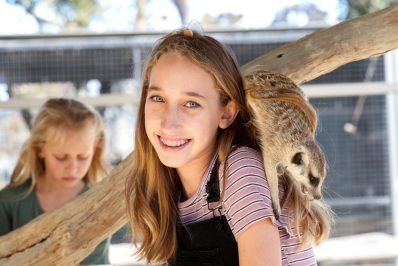Wild Wonders Await: The Best Zookeeper Experience For Young Adventurers

Get ready to go on an amazing trip to the heart of the animal kingdom, where the sounds of interesting animals become your everyday music. Imagine being a dedicated animal carer and getting a unique look at the complex world of wildlife protection and care. This isn’t simply a trip; it’s an adventure that will get kids excited about the outdoors. This is a one-of-a-kind chance to really be a zoo keeper for a day and learn about the wonder behind the cages.
Behind the Scenes: It’s Not Just Time to Eat
Being a zookeeper is a whole lot more intricate and rewarding than simply feeding animals. It needs lots of knowledge of how animals behave and a lot of attention to detail and a lot of wanting to keep them healthy. Every task is crucial to maintaining the animals’ health and happiness, whether it is catching small changes in their behavior or preparing individual diets for the animals. Young scientists will soon find out that this work demands both scientific knowledge and a big heart and learn how to look after animals properly.
See also: Sujith Bhakthan Net Worth: Travel Blogger’s Earnings
Waking Up the Wild in the Morning
The zoo and the zookeepers wake up as the sun starts to rise. The morning ritual is like a meticulously planned ballet of getting ready and watching. This section of the event teaches participants the important first actions, like checking on the animals overnight, making sure their cage is safe, and making sure everything is ready for the public before they arrive. It’s a quiet, private period that shows how much work goes into getting ready for the busy masses.
Nutritional Know-How: Making Food for Animals
One of the most important things for animal welfare is making sure they eat well, and young explorers will get to do this important job. They will learn about the varying dietary needs of different species, such as how herbivores need leafy greens while carnivores need specialised protein. This shows that food can be both food and mental stimulation for the animals. This real-world use of science backs up the scientific underpinning for taking care of animals.
Habitat Heroes: Building and Keeping Homes
It’s critically important for an animal’s mental and physical health to create spaces that feel like its native environment. Attendees will also begin to discover the art and science of creating and keeping habitats. They will understand how crucial the right substrate, climbing structures, water features, and enrichment items are. They will also find out how a properly designed enclosure can get animals to behave like themselves and enjoy their digs. This installment will pay special attention to the creative and problem-solving skills of being a zookeeper.
Animal Enrichment: Keeping Bodies and Minds Active
Enrichment is not a luxury for animals in captivity; it is a need that keeps them physically and mentally healthy. This part will teach young explorers about many ways to make things more interesting, such puzzle feeders that encourage natural foraging and sensory items that make people want to learn more. They will learn how zookeepers come up with new ways to keep animals interested and stop them from getting bored, which is very important for their health.
Heroes of Conservation: Saving Wildlife Around the World
They are also a focal point for worldwide conservation and care of individual animals on a daily basis. Young explorers discover how zoos help animals survive through breeding, research and education. They’ll discover endangered species and how crucial zoos are when it comes to preserving biodiversity, and they’ll feel a sense of responsibility for the future of the planet. This broader perspective connects their hands-on work to larger issues relating to the environment.
To include people: telling a wild story
Zoo keepers do more than caring for animals; They also teach people about wildlife and promote it. This part of the experience will show how important it is to talk to people, share information about creatures, and encourage visitors to become a defense advocate. Young Explorers will learn how the zoo interprets animals and connect people with nature. To create sympathy and action, you need to be able to communicate well.
One day of life: thinking about what you have to do
As the day ends, participants will have the opportunity to consider all the duties and benefits that come with a zoo keeper. This time helps them to think about what they have learned how dedicated them to this unusual work. It makes the point that being a zoo is a hard but very beneficial task for people who love animals. The things that have happened throughout the day will be with you.
It’s intended to sow the seeds for future engagement with wildlife and conservation. By offering real-world and engaging exposure to nature, it hopes to pique the interest of young explorers for jobs in animal care, veterinary medicine or environmental research. The roars, chirps and rumbles will stay in their minds and remind kids of the incredible things that are out there, the things we need to protect. This is the dream come true for a person who has always dreamed of being a zoo keeper for a day. It will make them more conscious of the natural world and how they can contribute to preserving it.






